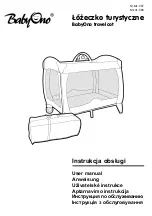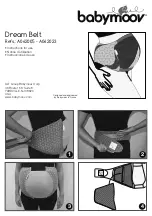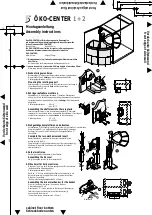
22
XC-ST70/70CE
TIMING CHART OF EXTERNAL TRIGGER SHUTTER - MODE 1 (NON-RESET MODE)
For setting the shutter speed using DIP switch
No HD/VD input (Internal synchronization)
*
1: This is a signal input from the outside.
*
2: As shown in the table on page 7, exposure time Te is determined by the setting of a DIP switch.
*
3: The normal operation state is engaged when the high period exceeds 1/3 sec. After that, the external
trigger shutter operation is engaged when the trigger pulse goes “low”. In this case, the area between the
falling edge of a trigger pulse and the subsequent 50 ms period is an external input inhibition area. During
the trigger inhibit period, an input trigger may be missed.
*
4: An internal VD signal is output by setting the INT/EXT switch on the rear panel to INT.
*
5: An image is output when an internal VD signal falls 10 ms or more after a trigger pulse rises (as shown by
2
and
3
in the figure). If the time (T in the figure) between the falling edges of a trigger pulse and internal
VD signal is under 10 ms, an image is output when the internal VD signal or the nextinternal VD signal falls
(as shown by
1
in the figure). In this case, an image is output when the next internal VD signal falls. An
image and WEN signal are always output together. For more details, refer to the WEN signal. (The falling
edge of an internal VD signal is the same in phase as the beginning of an equalizing pulse in a SYNC V
area.)
Note
: An image is superimposed when the next exposure ends before the previous image is output.
1/3 s
*
4
Interrnal VD
*
1
Trigger
Video out
WEN
External trigger shutter operation
*
3 Normal operation
Mode transition state
External input
inhibition area
(50 ms)
External trigger
shutter operation
*
2 Exposure time
Te
*
2 Exposure time
Te
*
2 Exposure
time
Te
250H (XC-ST70)
293H (XC-ST70CE)
250H (XC-ST70)
293H (XC-ST70CE)
*
5 T : T = Under 10 ms
*
5 T : T = 10 ms or more
*
5 T : T = 10 ms or
more
1
2
3
1
2
3








































